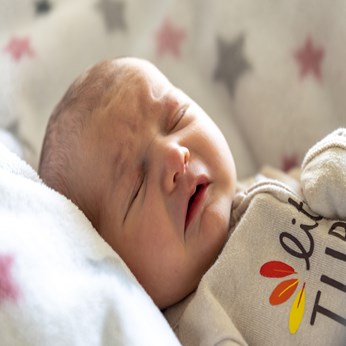Including Fruits In Your Baby's Diet - The Right Way To Do It
The importance of fruits and how it should be included in a baby’s diet is a popular discussion among many mothers today. While some contend that it is best to give it as a fruit itself, others feel giving fruit as fruit juice is good. Still others feel that fruit juice is best avoided as it rots the teeth and creates a craving for sweets in future.
Most mothers may be confused if they should give fruit or fruit juice to your babies, how much sugars fruit juices contain, how often kids should be drinking juice and which juices are the most nutritious. I got hold of few experts’ opinions to help understand better the role of fruit juices and fruits in a baby’s diet.
The most ideal age to start fruit juice is 6 months old of age; dilute 1 part of fruit juice in 10 parts of water. Fruit juice is very healthy as it contains minerals and vitamins like Vitamin C, potassium and folate. As a general rule 1 small glass of 100% fruit juice substitutes for about 5 portions of fruit and vegetable; as a general rule only 10% of boys and 7% of girls aged 11-18 reach this limit.
Fruit juice is best given to babies with a meal of fortified cereals, lentils, some beans and spinach; being rich in Vitamin C, fruit juice aids in the better absorption of iron from these sources and aids in the supply of healthy blood. Iron is found to be deficient in 46% of the girls between 11 and 18.
Some mothers doubt if they should give fruit juice to their babies as it contains added sugar that is bad for the teeth. Experts are of the opinion that babies should be given 100% pure unsweetened juices that only contain naturally occurring sugars in fruit and dried fruit. Taken in moderation with the help of a straw helps reduce dental decay; do not forget to encourage your babies to brush their teeth at least twice a day and have regular dental check-ups.

Talking of nutrition orange and other citrus fruits juices are richer in nutrients like Vitamin C, Vitamin B, and potassium. Vitamin C helps maintain a healthy immune system, skin and gums, while Vitamin B helps reduce tiredness and fatigue and potassium helps in normal functioning of the muscle function and nervous system and in maintaining a healthy blood pressure.
Drinking of fruit juice does not necessarily lead to weight gain; weight gain is caused by an intake of more calories than what is expended. A small glass of 100% fruit juice gives 60-80 calories; overweight or obesity can be avoided by consuming it in moderation and as part of a varied and balanced diet.
Some mothers many be confused between the terms not-from-concentrate juice and juice made from concentrate; juice from concentrate has water removed where the fruit is harvested and processed and is added back later, while juice not from concentrate has a better flavor.
Lastly it is best to include fruit in a baby’s diet in the place of fruit juice as it contains more fiber in addition to vitamins, minerals and phytochemicals. Encourage your children to eat a variety of fruits and juices as different fruits and vegetables contain different vitamins and minerals and would form a part of a balanced diet.
Take the next step toward your goals
Share your requirement and find the best care providers in your area
-
Looking for a caretaker’s job? Build your profile and get in touch with families in your vicinity.
-
Discover nannies, babysitters, cooks, housekeepers, pet sitters, and elder care under one roof.
-
Get all the support you need to run a successful care center.
-
Search for appropriate centers near you depending on your needs.
Care Corner Insights: Blog Library

Overnight Babysitters in Bellevue, WA for Business-Travelling NRI Parents: Safety & Policies
For many NRI parents living in Bellevue, WA, frequent business trips are a reality. While traveling, one of the biggest concerns is ensuring your children are safe, cared for, and emotionally supported during overnight stays. Overnight babysitters ca

Indian Home-Style Cooks in Queens, NY: Tiffin-Style Weekly Meal Prep from Your Kitchen
Queens, NY, is home to one of the most diverse food cultures in the country, and Indian cuisine holds a special place among families looking for authentic, comforting meals. While restaurant takeout is convenient, nothing compares to the taste and nu

Baby Sleep Problems: What is Sleep Regression and How to Handle It
If you’re a parent, you know that baby sleep is one of the greatest mysteries of life. One day your little one is snoozing like an angel, and the next day they’re suddenly waking up every hour, fussing, or refusing to nap. Before you panic, there’s a

What is Validation Therapy? A New Approach to Dementia Care
Caring for loved ones with dementia is one of the most emotionally challenging journeys a family can face. Traditional methods often focus on correcting memory lapses or redirecting confused thoughts—but that can sometimes lead to frustration, stress

What is a Part-Time Nanny and Do You Need One
Parenting is a beautiful journey, but let’s be honest—it can also be exhausting! Between work deadlines, household chores, and family responsibilities, sometimes there just aren’t enough hours in a day. That’s where part-time nannies step in, offerin

Part-Time Housekeeper Hiring in Alpharetta, GA: Weekly Schedules, Pricing, and Must-Do Tasks
Keeping a home spotless while balancing work, family, and personal commitments can be overwhelming. For families and professionals in Alpharetta, GA, hiring a part-time housekeeper is one of the most practical solutions. Whether you need help once a

Affordable Daycares in Irving, TX with Indian Menu Options: Parent Reviews & Enrollment Tips
Finding the right daycare for your little one is never an easy decision—especially if you’re looking for one that fits your budget and offers familiar food options like an Indian-inspired menu. For parents in Irving, TX, the good news is that several

Can Babies Sleep on Their Side? Tips for Safe Baby Sleep
When it comes to newborns, every parent worries about the smallest details—how they sleep, what they wear, even which way they turn their tiny heads. One common question that pops up is: “Can babies sleep on their side?” The short answer? Not recom

8 Benefits of Hiring a House Cleaner for Your Home
Let’s be honest — keeping a home sparkling clean while juggling work, family, and daily life can feel like a full-time job in itself. That’s where professional house cleaners step in, turning the chaos into calm. If you’ve been debating whether to br

How to Care for a Gassy Baby? What’s Normal and what’s not – Expert Advice
If you’re a new parent navigating the world of burps, bubbles, and baby fussiness—welcome to the club! Gas in babies is incredibly common, especially in the first few months. But how do you know what’s normal and when it’s time to call in expert help